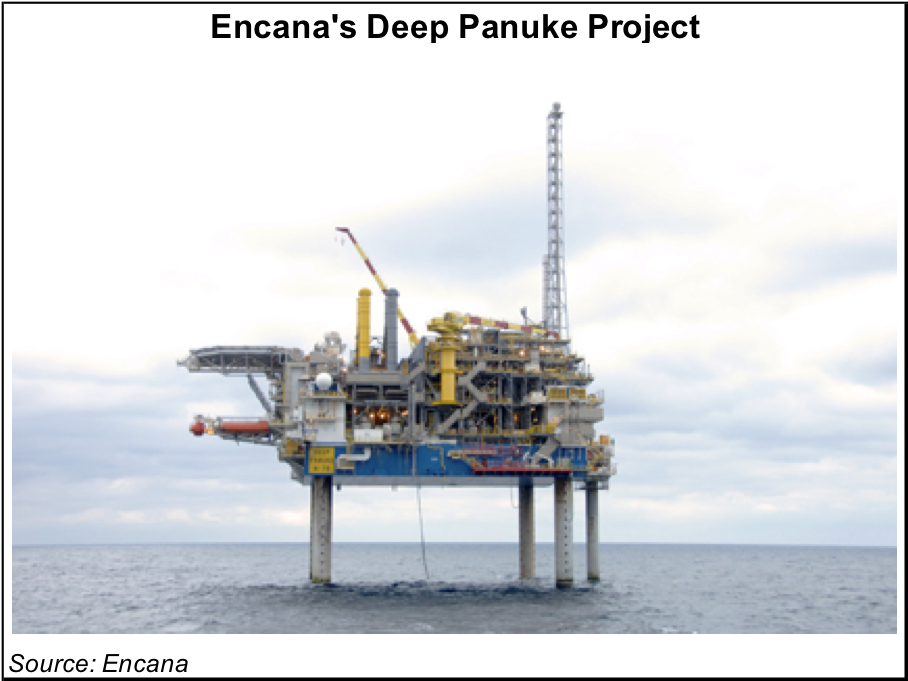E&P | NGI All News Access | NGI The Weekly Gas Market Report
Encana to Abandon Sinking Deep Panuke Natural Gas Project
Encana Corp. confirmed Monday that its unlucky C$700 million ($560 million) Deep Panuke venture is poised to sink off the Atlantic seaboard natural gas market, just 56 months after starting up offshore of Nova Scotia.

The Calgary producer, whose fortunes today are tied to North America’s onshore, posted a formal project description for abandoning the project’s 175-kilometer (105-mile) sea floor pipeline from its production platform to a coastal processing plant at Goldboro, near the provincial capital in Halifax.
Deep Panuke, a project that suffered fits and starts from its beginnings in the early 2000s, turned disappointing soon after making a promising start in 2013, when output swiftly rose to full capacity for 300 MMcf/d less than four months after operations began in mid-summer.
Subterranean water, under high geological pressure, swamped the wells in late 2014. In early 2015 the recoverable reserves estimate sank to 80 Bcf from the initial forecast of 390-890 Bcf. Production dove to declining volumes only sold during seasonal market demand and price peaks.

Deep Panuke output only averaged 19 MMcf/d in 2017, Encana reported in its recent annual 10-K disclosure filing for last year with the U.S. Securities and Exchange Commission.
The pipeline abandonment program, an outline presented to the National Energy Board (NEB), does not yet fix a final closure target date. Deep Panuke’s current production license from the Canada-Nova Scotia Offshore Petroleum Board expires Aug. 1, 2019.
Encana’s action puts Deep Panuke in step with the nearby bigger and luckier Sable Offshore Energy Project (SOEP), which hit 600 MMcf/d and declined naturally for 17 years. SOEP operator ExxonMobil Canada Ltd. posted an abandonment plan in January.
The pipeline and well closure plans also signal the end for Maritimes & Northeast Pipeline’s role since 2000 as an export conduit for Canadian gas to New England. Work is beginning on converting the line into a Canadian import service for Marcellus and Utica shale gas from the eastern United States.
The Nova Scotia and New Brunswick governments have ruled out replacing Deep Panuke and SOEP with onshore production. Politically popular legislation bans tapping the provinces’ shale deposits with horizontal drilling and hydraulic fracturing.
© 2024 Natural Gas Intelligence. All rights reserved.
ISSN © 1532-1231 | ISSN © 2577-9877 | ISSN © 1532-1266 |
